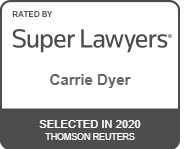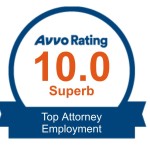Overtime Laws
GENERAL LAWS AND INFORMATION
Exemption for Professional Employees
The exemption for “professional employees” encompasses two general types of employees: learned professionals and creative professionals. Employees who fall within either category are exempt from both the minimum wage and overtime pay requirements under the FLSA.
In order to satisfy the “learned professional” exemption, several requirements must all be met:
First, the employee is paid on a salary or fee basis at a rate not less than $913.00 per week (or $455 per week before December 1, 2016).
Second, the employee’s primary duties include performance of work which requires advanced knowledge. Primary duty means the employee’s main, principal, or most important duty performed. This determination is made when viewing the totality of circumstances—examining the employee’s job as a whole.
Advanced knowledge is defined as “work which is predominantly intellectual in character and which includes work requiring the consistent exercise of discretion and judgment.” The advanced knowledge must be in a field of science or learning and must be acquired through a “prolonged course of specialized intellectual instruction.” This does not include employees who have acquired their skill by experience, rather than by specialized academic training.
In order to satisfy the “creative professional” exemption, several requirements must all be met:
First, the employee is paid on a salary or fee basis at a rate not less than $913.00 per week (or $455 per week before December 1, 2016).
Second, the employee’s primary duty is performing work that requires invention, imagination, originality, or talent in a artistic or creative field, such as music, writing, acting, or graphic art. Primary duty means the employee’s main, principal, or most important duty performed. This determination is made when viewing the totality of circumstances—examining the employee’s job as a whole.
Common occupations to which this exemption applies include: actors, teachers, musicians, composers, soloists, certain painters, writers, cartoonists, essayists, and novelists.
If all requirements of either the learned professional or the creative professional exemption are satisfied, the employee is considered “exempt” from the minimum wage and overtime laws of the FLSA.
To find out if an exemption applies to you, take our Survey.



